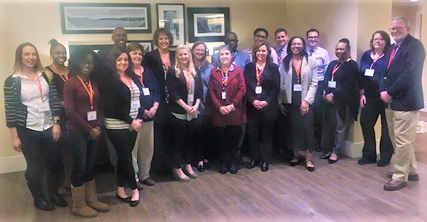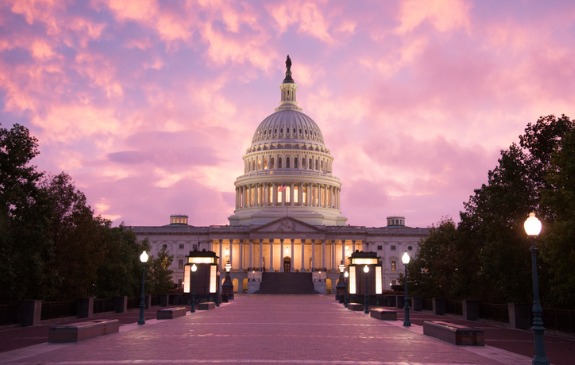Home > MIC Stories: Workforce Recruitment and Retention Collaborative

MIC Stories (MHTTCs Implementing Change) feature technical assistance projects that had a significant impact on practice.
Recruiting and retaining a behavioral health and/or primary care workforce is a major challenge for many organizations that provide mental health services. Vacant positions are common; organizations have experienced 50% vacancy rates. Finding and keeping employees, particularly people of color, can be particularly daunting. High vacancy and turnover rates are costly to organizations, place a burden on existing employees, and decrease access to care and quality of care for individuals in need.
The Central East MHTTC, in collaboration with the Annapolis Coalition on the Behavioral Health Workforce and the Community Behavioral Health Association of Maryland, invited organizations to apply to participate in a Workforce Recruitment and Retention Collaborative. This project educated community-based behavioral health providers in Maryland on the multiple factors contributing to the crisis in the recruitment and retention of behavioral staff. The collaborative assisted providers to identify factors influencing their ability to recruit and retain staff and develop individualized action plans. It also provided technical assistance and allowed providers to share progress and receive feedback from members of the Collaborative.
Five community-based behavioral health rehabilitation programs and one in-patient psychiatric hospital participated in the Year 1 Learning Collaborative. The Year 2 Learning Collaborative consisted of six Federally Qualified Health Centers. Each organizational team, known as the Recruitment and Retention Change Management Team, comprised the director of human resources and two program managers/supervisors who had hiring authority. The participating organizations represented all geographical areas of the state including urban, suburban and rural areas. The Teams were selected via a request for proposal process. Selection was based on demonstrated need and ability to actively participate in the Collaborative.

Initially, an 8-hour meeting involving all participating organizations was held. During this meeting, participants were given data and research perspectives on recruitment and training issues. Organizations also received training and technical assistance (T/TA) on recruitment and retention evidence-based practices and learned how to incorporate these into individualized strategies. At the conclusion of day one, each organization developed an action plan. Each month following, organizations received virtual one-on-one T/TA. During this time, the Annapolis Coalition reviewed and analyzed written organizational progress reports; recommendations for adjustments were made as necessary. Every three months, the entire Collaborative met virtually to share progress, discuss lessons learned, exchange ideas and resources and assist one another during and after this meeting on matters of mutual interest. The Collaborative lasted for nine months.
The most significant challenge was the team members’ ability to commit to the time involved. This resulted from unexpected turnover within the representative organizations. In addition, some participants’ time was compromised due to unexpected external factors such state legislative activities and COVID-19.
As a result of the learning collaborative, provider organizations made one or more of the following changes:
The sustainability phase for this particular collaborative launched in 2020, with organizations able to receive ongoing technical assistance. We also launched another Workforce Learning Collaborative in Pennsylvania in 2020. This collaborative focuses on primary care providers with integrated behavioral health care. The Pennsylvania Collaborative identified the recruitment and retention of Hispanics/Latinos as a high need. Central East MHTTC, the Annapolis Coalition and the National Hispanic and Latino MHTTC initiated a project to connect behavioral health professionals in Puerto Rico with employment opportunities throughout the Central East Region and other parts of the United States in which there is a demonstrated need.
Based on need and the outcomes of this collaborative, the District of Columbia has self-selected to be the site of the 2021 workforce collaborative.
The Workforce Collaborative supported by the Central East MHTTC and the Annapolis Coalition is driven by their common need to recruit and retain a behavioral health workforce. Individually and collectively, the Workforce Collaborative participants learned the importance of utilizing a robust, data-driven, internal change process to successfully recruit and retain staff. The data collection and analysis proved to be an essential catalyst for understanding the need, garnering internal support, identifying areas of importance, and tracking successes.

The Central East MHTTC, funded by the Substance Abuse and Mental Health Services Administration and managed by the Danya Institute, Inc., provides training and technical assistance, and supports, develops and disseminates resources to the behavioral health and primary care workforce in the U.S. Department of Health and Human Services Region 3. Central East strives to improve the knowledge, skills and capacity of the workforce in Delaware, Maryland, Pennsylvania, Virginia, West Virginia and the District of Columbia that provides prevention, treatment and recovery support services to individuals who have and/or are at risk of developing serious mental illness and/or co-occurring substance use disorders.